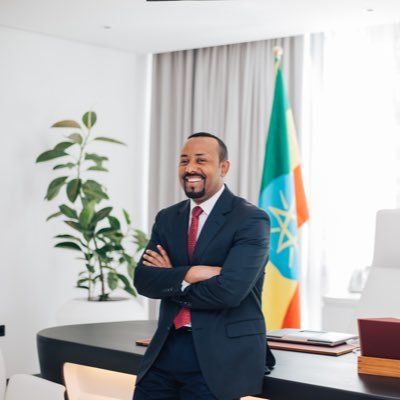Ethiopian Prime Minister Abiy Ahmed has made a groundbreaking announcement regarding talks with the Oromo Liberation Army (OLA), marking a significant step towards peace and stability in Ethiopia. The OLA, a rebel group fighting for the rights of ethnic Oromo people in the Oromia region, has been designated a terrorist organization by the federal government.
This conflict between the OLA and the federal government is separate from the fighting in Tigray, which has been the focus of international attention since the Tigray People’s Liberation Front (TPLF) attacked federal army bases in November 2020. However, the OLA has formed an alliance with the TPLF, which could complicate the situation in the region.
The OLA emerged in 2018 as a result of growing frustration and grievances among the Oromo people. The group’s primary goal is to fight for the rights of the Oromo people and promote self-determination in the region. The group has been involved in several attacks on government targets, including police stations and military bases, which have resulted in significant violence and displacement in the Oromia region.
The announcement of talks with the OLA comes after the Ethiopian government’s peace deal with the TPLF, signed in November 2020, which ended the war in Tigray. The peace agreement was a significant step towards resolving the conflict in the region and restoring stability to Ethiopia.
The negotiations with the OLA are an essential part of the peace process in Ethiopia. The Oromia region is the country’s largest and most populous region, and the OLA’s activities have caused significant instability and insecurity in the region. The talks could lead to a lasting peace agreement and improve the lives of the people in the region.
In a statement, Prime Minister Abiy Ahmed stressed the importance of the negotiation process for the Ethiopian government and people, highlighting the government’s commitment to resolving the conflict in the country. The inclusion of a third-party mediator in the talks, as requested by the OLA, is also a positive step towards a peaceful resolution of the conflict.
The OLA’s confirmation of the talks as “a crucial and positive step towards establishing a lasting peace in the region” is also encouraging. The group’s willingness to engage in talks and its acceptance of the government’s conditions for peace negotiations suggest that a resolution to the conflict is possible.
However, the road to peace in Ethiopia remains long and difficult. The conflict between the OLA and the federal government has been ongoing for several years and has resulted in significant violence and displacement in the Oromia region. The inclusion of the TPLF in the conflict could further complicate the situation.
The success of the negotiations with the OLA will depend on several factors. The government will need to ensure that the talks are conducted in good faith and that the third-party mediator is impartial and respected by all parties. The OLA will need to be willing to compromise and make concessions for the sake of peace.
The international community can also play a role in supporting the peace process in Ethiopia. The United Nations and other organizations can provide technical assistance and support for the negotiations, as well as help to address the root causes of the conflict in the region.
The Ethiopian government has been under international pressure to resolve the conflict and restore peace and stability in the country. The United States, the European Union, and the United Nations have all expressed concern about the ongoing violence and human rights abuses in Ethiopia.
In a statement, U.S. Secretary of State Antony Blinken welcomed the announcement of talks between the Ethiopian government and the OLA, saying it was a “critical step” towards resolving the conflict in Ethiopia.
The United Nations has also welcomed the announcement, with spokesperson Stéphane Dujarric stating that “all efforts towards a peaceful resolution of the conflict in Ethiopia are welcome.” Dujarric added that the UN “encourages all parties to engage constructively in the dialogue process and to work towards a sustainable peace agreement that addresses the root causes of the conflict.”
Image Credit: Abiy Ahmed Ali/Twitter




